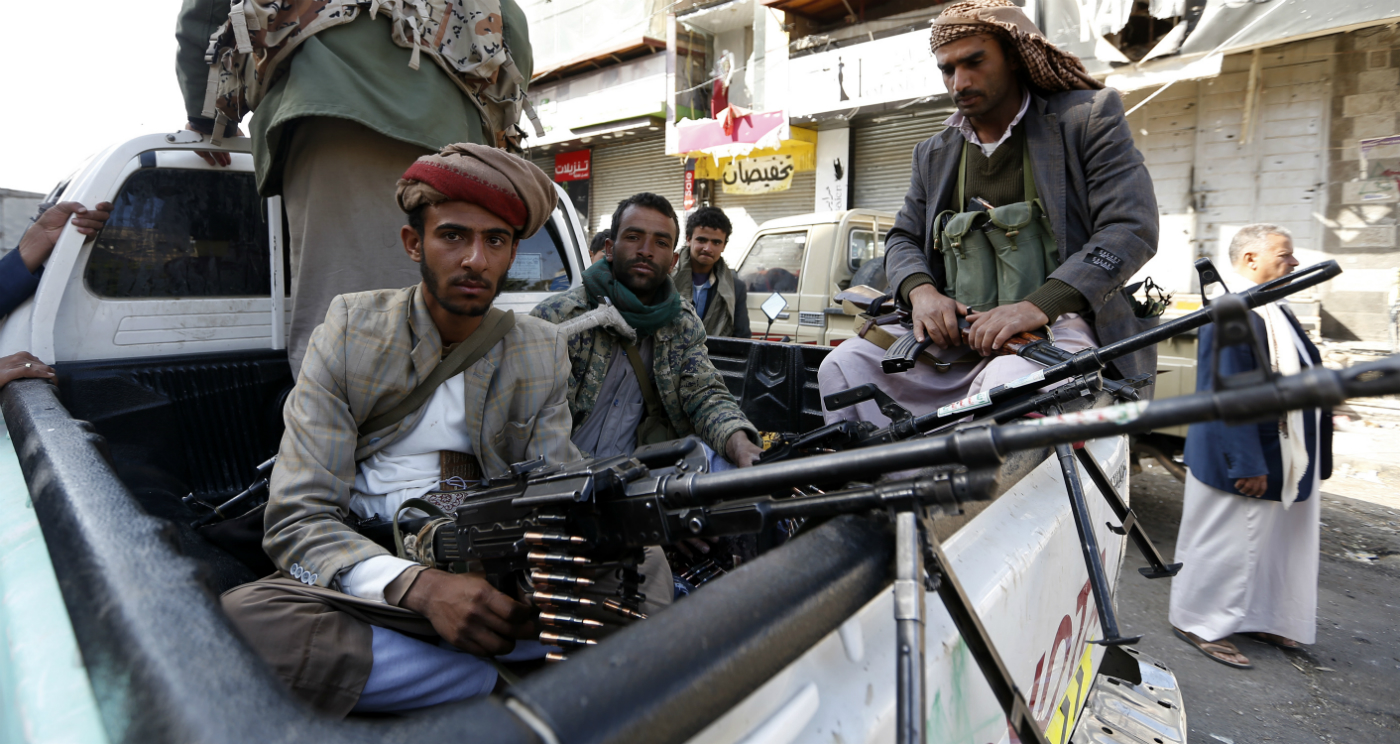Yemen’s ex-president Saleh reported dead in Sanaa fighting
Broadcaster Al Jazeera says death has been confirmed by former leader’s political party

A free daily email with the biggest news stories of the day – and the best features from TheWeek.com
You are now subscribed
Your newsletter sign-up was successful
Yemen’s former president Ali Abdullah Saleh has reportedly been killed in fighting with the Iran-aligned Houthi militia in the capital Sanaa, a development expected to unite Yemenis and to have major implications for the poverty-stricken Arab country.
Al Jazeera says Saleh’s death was confirmed by his political party, the General People’s Congress (GPC). A source told al-Arabiya television that he was killed by sniper bullets.
A pro-Houthi television channel aired a video that appeared to show Saleh lying dead on a blanket, with a wound in his head, surrounded by Houthi militias celebrating his death. Houthi rebels claim to have killed Saleh as he fled the capital, the Financial Times reports. There were also reports of an explosion in Saleh’s home in Saana.
The Week
Escape your echo chamber. Get the facts behind the news, plus analysis from multiple perspectives.

Sign up for The Week's Free Newsletters
From our morning news briefing to a weekly Good News Newsletter, get the best of The Week delivered directly to your inbox.
From our morning news briefing to a weekly Good News Newsletter, get the best of The Week delivered directly to your inbox.
Hakim Almasmari, editor-in-chief of the Yemen Post, told Al Jazeera that while the death would not be the end of Saleh's political movement, “but it’s a very big blow”.
Saleh ruled Yemen for more than three decades and remained a key behind-the-scenes player. Until last week, Saleh’s supporters were fighting alongside the Houthis in a war against Yemen’s president, Abdrabbuh Mansour Hadi.
“But longstanding political tensions and a dispute over control of the main mosque in the rebel-controlled capital, Sanaa, triggered fierce clashes that have left more than 125 people dead and 238 wounded since Wednesday night,” the BBC says.
On Saturday, Saleh offered to turn a new page, with the Saudi-led coalition backing Hadi. But, the BBC says, Houthis accused Saleh of staging a “coup” against “an alliance he never believed in”.
A free daily email with the biggest news stories of the day – and the best features from TheWeek.com
Almasmari said that while the death would not bring Yemen closer to an end in fighting, it would unite Yemenis under one leadership.
“Before there were two leaderships, two different agendas, two different ways how to win the war,” he added.
The Yemeni conflict is essentially a proxy war between Saudi Arabia, the region’s Sunni powerhouse, and Shia Iran, reports the FT.
-
 Are Hollywood ‘showmances’ losing their shine?
Are Hollywood ‘showmances’ losing their shine?In The Spotlight Teasing real-life romance between movie leads is an old Tinseltown publicity trick but modern audiences may have had enough
-
 A dreamy long weekend on the Amalfi Coast
A dreamy long weekend on the Amalfi CoastThe Week Recommends History, pasta, scenic views – this sun-drenched stretch of Italy’s southern coast has it all
-
 Can foster care overhaul stop ‘exodus’ of carers?
Can foster care overhaul stop ‘exodus’ of carers?Today’s Big Question Government announces plans to modernise ‘broken’ system and recruit more carers, but fostering remains unevenly paid and highly stressful
-
 Epstein files topple law CEO, roil UK government
Epstein files topple law CEO, roil UK governmentSpeed Read Peter Mandelson, Britain’s former ambassador to the US, is caught up in the scandal
-
 Iran and US prepare to meet after skirmishes
Iran and US prepare to meet after skirmishesSpeed Read The incident comes amid heightened tensions in the Middle East
-
 Israel retrieves final hostage’s body from Gaza
Israel retrieves final hostage’s body from GazaSpeed Read The 24-year-old police officer was killed during the initial Hamas attack
-
 China’s Xi targets top general in growing purge
China’s Xi targets top general in growing purgeSpeed Read Zhang Youxia is being investigated over ‘grave violations’ of the law
-
 Panama and Canada are negotiating over a crucial copper mine
Panama and Canada are negotiating over a crucial copper mineIn the Spotlight Panama is set to make a final decision on the mine this summer
-
 Why Greenland’s natural resources are nearly impossible to mine
Why Greenland’s natural resources are nearly impossible to mineThe Explainer The country’s natural landscape makes the task extremely difficult
-
 Iran cuts internet as protests escalate
Iran cuts internet as protests escalateSpeed Reada Government buildings across the country have been set on fire
-
 US nabs ‘shadow’ tanker claimed by Russia
US nabs ‘shadow’ tanker claimed by RussiaSpeed Read The ship was one of two vessels seized by the US military